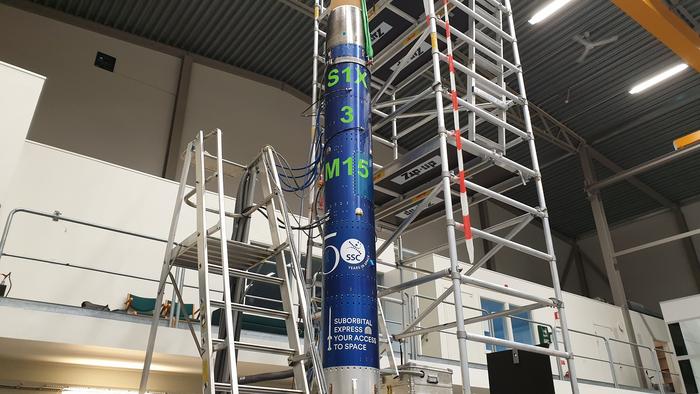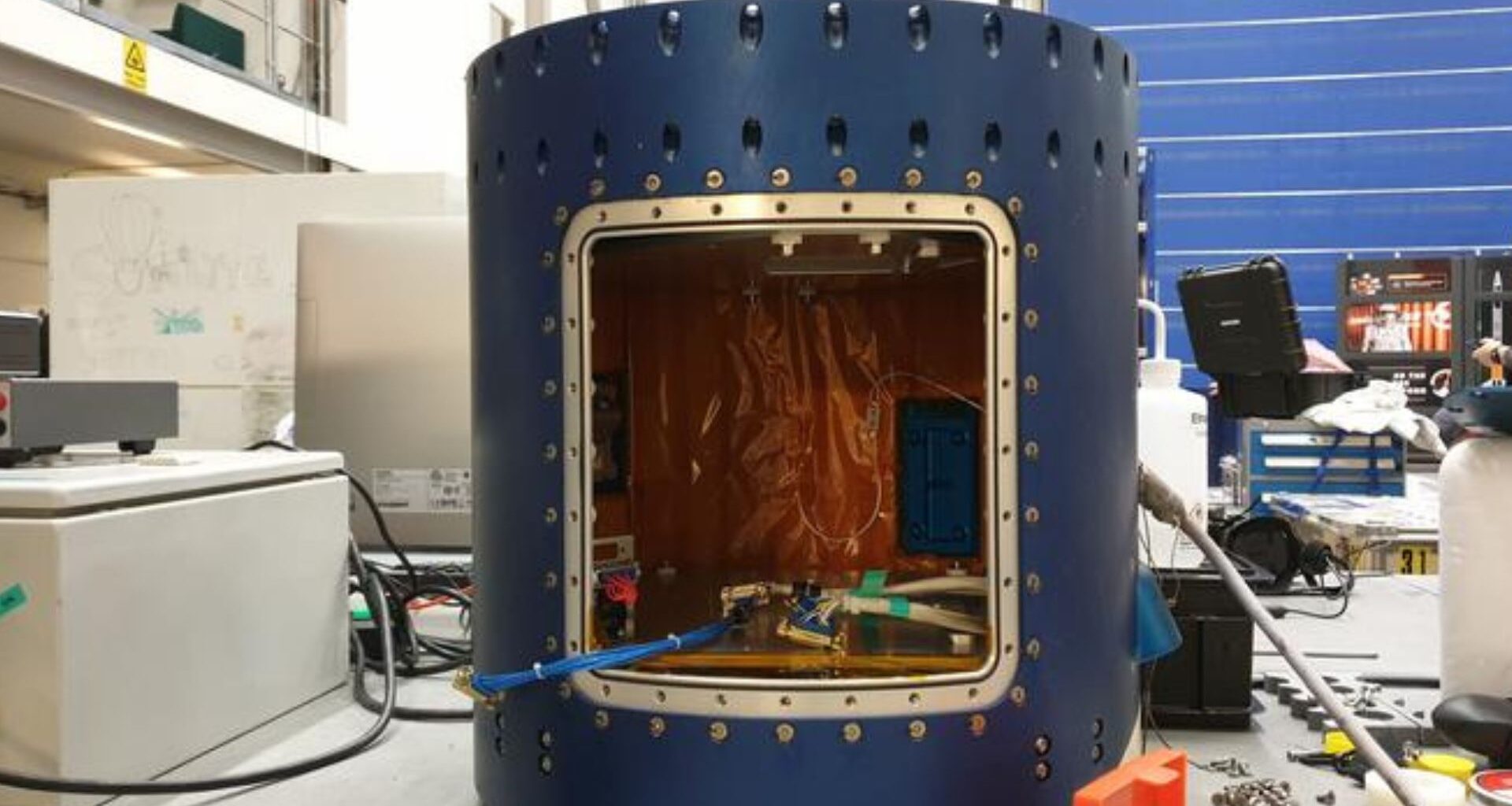A “world’s first study” has demonstrated that bacterial spores can withstand the extreme forces associated with a space launch.
Researchers at RMIT University in Melbourne have proved the resilience of Bacillus subtilis, a bacterium vital for human health.
It confirms that this bacteria is tough enough to endure launch, brief microgravity, and re-entry phases.
A major challenge for sustaining life on the Red Planet has been the unknown fate of vital bacteria during the long journey. This study alleviates those concerns.
“Our research showed an important type of bacteria for our health can withstand rapid gravity changes, acceleration, and deacceleration,” said Elena Ivanova, study co-author, in the press release on October 6.
“It’s broadened our understanding of the effects of long-term spaceflight on microorganisms that live in our bodies and keep us healthy,” Ivanova added.
 M15 59 sounding rocket on the assembly pad. Gail Iles, RMIT
M15 59 sounding rocket on the assembly pad. Gail Iles, RMIT
Importance of bacteria for long-term missions
Humans have managed short stays in space since the 1970s, but Mars is a completely different world.
Microorganisms are hailed as a major biological support system to sustain healthy human life for a future Mars colony over decades.
B. subtilis and similar bacteria could help maintain the immune system, gut health, and blood circulation.
However, the key question has been whether beneficial bacteria can withstand the years-long, radiation-intensive journey through deep space.
This survival is threatened by intense space radiation (Galactic Cosmic Rays and Solar Particle Events), which can damage microbial DNA. Furthermore, the microgravity may lead to behavioral changes in bacteria, which would be detrimental to astronaut health.
This new study is a positive step in understanding the survival of bacteria.
For the study, spores of B. subtilis were launched to the edge of space aboard a sounding rocket.
The bacteria’s resilience was studied during a rapid ascent with forces up to 13g (13 times Earth’s gravity). The payload endured over six minutes of microgravity (weightlessness) at about 260 kilometers in the test.
During the re-entry, the rocket faced extreme conditions, including deceleration forces of up to 30g upon re-entry, while simultaneously spinning about 220 times per second.
After all this time, the bacteria grew normally and maintained their original structure after the experiment. This short survival signals a promising future for astronaut health during extended space missions.
More experiments required
The study data could help develop better life support systems to keep astronauts healthy throughout long-duration missions.
Moreover, the pharmaceutical companies can now use this baseline data to conduct life science experiments in microgravity.
“By ensuring these microbes can endure high acceleration, near-weightlessness, and rapid deceleration, we can better support astronauts’ health and develop sustainable life support systems,” said RMIT space science expert Gail Iles.
The team highlights that knowing the limits of microbial survival could spur biotechnology innovations on Earth.
For instance, acquiring more detailed data could help develop new antibacterial treatments and combat antibiotic-resistant bacteria.
The success of Bacillus subtilis in surviving a real space launch offers a strong foundation.
The initial experiment will pave the way for future studies on more delicate organisms and bring humanity closer to establishing a healthy, thriving presence on Mars.
The team now seeks more funding to expand life science experiments in microgravity.
The findings were published in the journal npj Microgravity on October 6.

